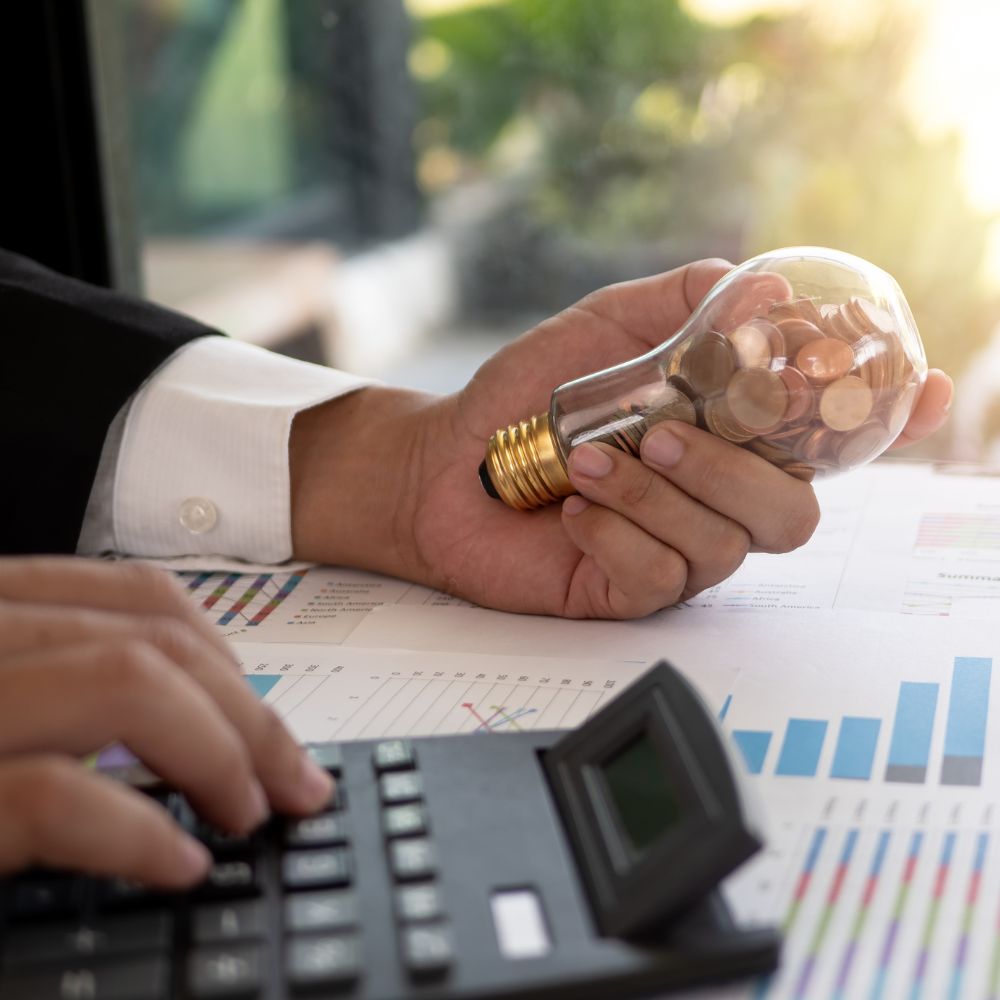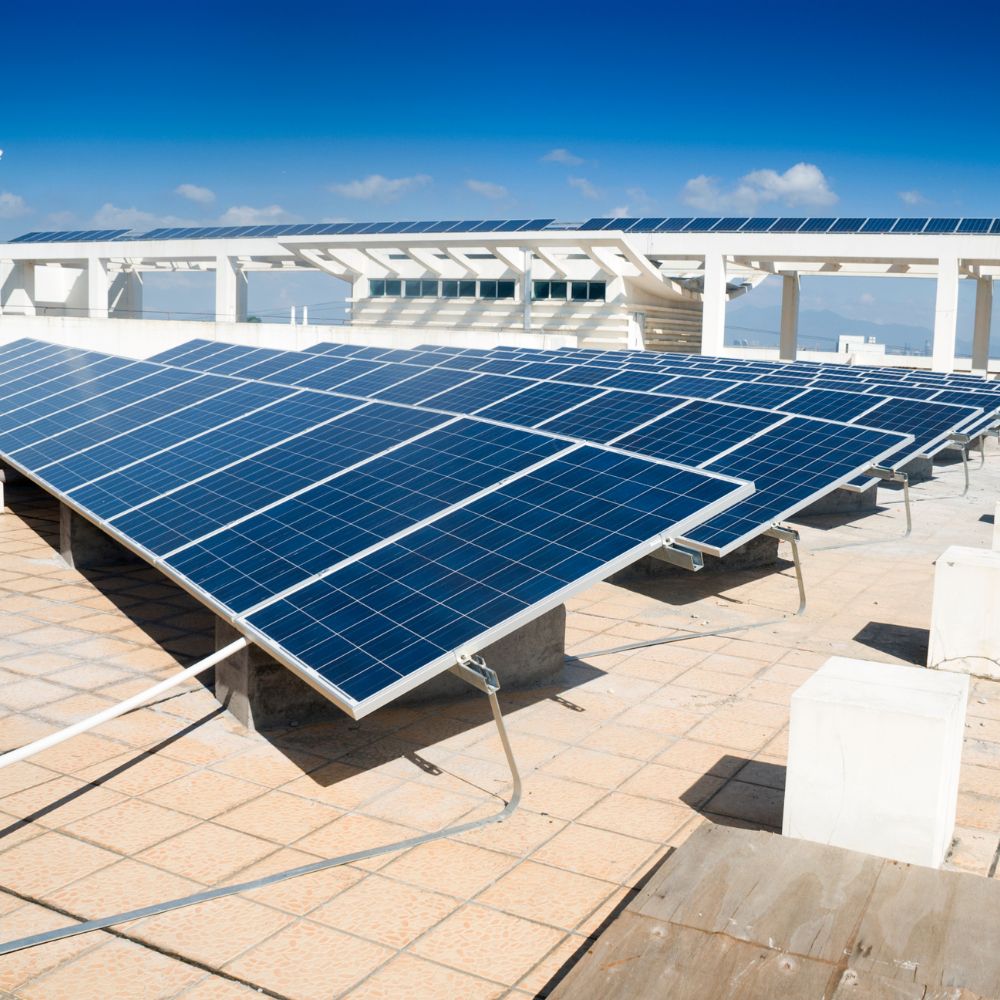How Locking in Electricity Costs with Solar Energy is a Strategic Investment
2024-10-03 15:39:23

In an era of escalating energy costs and heightened environmental concerns, businesses are increasingly seeking sustainable and cost-effective solutions to power their operations. Solar energy has emerged as a leading choice, offering not just environmental benefits but also significant financial advantages.
One of the most compelling reasons for businesses to consider solar energy is the opportunity to lock in electricity costs, thereby safeguarding against future price volatility and ensuring long-term financial stability.
This article delves into why investing in solar energy is not just a smart environmental decision, but a strategic financial investment for businesses looking to control their electricity expenses.
The Rising Cost of Conventional Energy
Electricity costs have been on an upward trajectory for years, driven by factors such as the depletion of fossil fuels, infrastructure upgrades, and regulatory changes. For businesses, these rising costs translate into higher operational expenses, which can impact profitability and competitiveness. Furthermore, the unpredictability of electricity prices makes budgeting a challenge, as companies are often at the mercy of fluctuating tariffs and surcharges. This scenario creates a compelling case for businesses to seek alternative energy solutions that offer greater predictability and control over their expenses.
How Solar Energy Locks in Electricity Costs
Solar energy systems, once installed, allow businesses to generate their own electricity, reducing or even eliminating their dependence on the grid. By harnessing the power of the sun, businesses can stabilise their energy costs for decades, as solar panels typically have a lifespan of 25 to 30 years. This long-term predictability is a game-changer for businesses that want to avoid the financial uncertainty associated with traditional energy sources.
-
Fixed Energy Costs: Once a solar system is installed, the cost of energy production is essentially fixed. Businesses can calculate their energy costs over the lifespan of the system, allowing for more accurate financial planning and budgeting.
-
Protection Against Inflation: As utility rates rise over time due to inflation and other factors, businesses with solar energy systems are insulated from these increases. This protection provides a significant competitive edge, as companies can allocate resources more efficiently without worrying about unexpected energy cost spikes.
-
Reduced Peak Demand Charges: Solar energy can also help reduce peak demand charges, which are typically incurred during high electricity usage periods. By generating their own power during these times, businesses can lower their demand from the grid, resulting in significant savings on their energy bills.
Financial Incentives and Return on Investment
Investing in solar energy is not just about reducing operational costs; it's also about making a financially sound investment that can yield substantial returns. Various financial incentives and programs can further enhance the attractiveness of solar energy for businesses.
-
Tax Incentives and Rebates: Many governments offer tax credits, rebates, and other financial incentives to encourage businesses to adopt renewable energy solutions. These incentives can significantly reduce the upfront cost of solar installations, shortening the payback period and enhancing the return on investment (ROI).
-
Depreciation Benefits: Businesses can take advantage of accelerated depreciation for solar energy systems, allowing them to recover the cost of the investment more quickly through tax savings.
-
Increased Property Value: Commercial properties with solar installations are often more attractive to potential buyers or tenants due to the reduced energy costs. This can increase the property’s value and provide additional financial benefits in the long run.
Environmental and Corporate Social Responsibility (CSR) Benefits
Beyond the financial advantages, investing in solar energy supports broader environmental and social goals. As companies become more attuned to the impact of their operations on the environment, solar energy provides a way to demonstrate corporate social responsibility (CSR) and commitment to sustainability.
-
Reduction in Carbon Footprint: By generating clean, renewable energy, businesses can significantly reduce their carbon emissions, contributing to the fight against climate change and meeting regulatory compliance requirements.
-
Enhanced Brand Image: Consumers and stakeholders are increasingly favouring businesses that prioritise sustainability. A solar energy investment can enhance a company's reputation, attract environmentally conscious customers, and strengthen stakeholder relationships.
-
Employee and Community Engagement: Demonstrating a commitment to renewable energy can also boost employee morale and engagement, as well as community support. Employees take pride in working for a company that values environmental responsibility, and local communities often appreciate businesses that contribute to the sustainability of the region.
Overcoming the Barriers to Solar Investment
Despite the clear advantages, some businesses may be hesitant to invest in solar energy due to perceived barriers such as high upfront costs, complex installation processes, and uncertainty about the technology's performance. However, these barriers are rapidly diminishing:
-
Financing Options: Various financing models, such as power purchase agreements (PPAs), leasing, and loans, make it easier for businesses to invest in solar without a significant upfront investment. These options allow businesses to benefit from solar energy savings from day one.
-
Technological Advancements: Advances in solar technology have improved efficiency and reduced costs, making solar energy more accessible and reliable than ever before.
-
Reliable Partners and Service Providers: Working with experienced service providers like Daisy Business Solutions ensures a seamless transition to solar energy, with comprehensive support from initial assessment to installation and maintenance.
Conclusion: A Strategic Investment for a Sustainable Future
Locking in electricity costs with solar energy is a strategic investment that offers businesses financial stability, environmental benefits, and a competitive edge. As the global energy landscape continues to evolve, forward-thinking companies that embrace solar energy are positioning themselves for long-term success.
By partnering with a trusted provider like Daisy Business Solutions, businesses can confidently navigate the path to energy independence and sustainability, securing a brighter and more prosperous future.
In an uncertain economic environment, the ability to predict and control costs is invaluable. Solar energy not only empowers businesses to achieve this but also aligns with broader goals of sustainability and corporate responsibility. It's time for businesses to see beyond the initial investment and recognise the transformative potential of locking in electricity costs with solar energy—a move that promises to be as strategic as it is sustainable.

